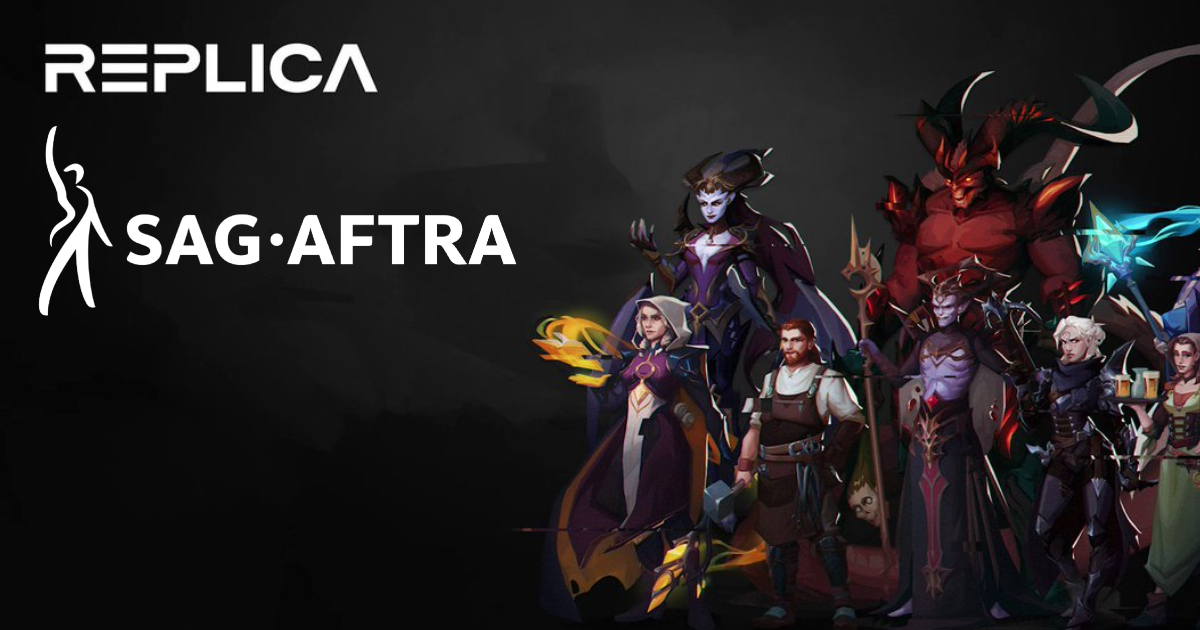Actors criticize SAG-AFTRA's new AI voice agreement: "Studios will look past creativity for convenience"
SAG-AFTRA has entered into an agreement with AI company Replica Studios to allow game companies to use digital voice replicas of real-life actors. However, the move caused sharp criticism in the professional community.

What happened?
- On January 9, SAG-AFTRA announced what it called a “groundbreaking AI voice agreement” with Replica Studios, a company that sells “ethical” AI voices and works with developers like Crytek, Hangar 13, and Squanch Games.
- According to the organization, it will allow professional voice over actors to “safely explore new employment opportunities for their digital voice replicas with industry-leading protections tailored to AI technology.” Replica Studios, for its part, will be able to create and license digital replicas of their voice.
- SAG-AFTRA noted that the agreement was approved by affected members of the union’s voiceover performer community. It is also described as a step towards the “ethical use” of AI vocies, which should establish minimum terms and ensure that voices of human actors are only used with their consent.
- “With this agreement, we have achieved fully informed consent and fair compensation when it comes to the use of our members’ voices and performances,” SAG-AFTRA national executive director and chief negotiator Duncan Crabtree-Ireland said in a statement.
- The deal is specific to one company and doesn’t apply to synthetic performances created with the help of AI training.
How did voice actors react to SAG-AFTRA’s agreement with Replica Studios?
Many voice actors took to X (formerly Twitter) to criticize the agreement between SAG-AFTRA and Replica Studios. Most of them didn’t even know about the deal beforehand, with Yong Yea saying that “every voice actor I know not only didn’t approve this, they pretty much heard about this for the first time today on Twitter.”
Yea…would’ve been nice if you informed us working, SAG-AFTRA video game voice actors (YOUR MEMBERS) before this generic-ass “AI Agreement” was “approved” in this PR stunt.
I have immense respect for our interactive committee who apparently “approved” this. But why weren’t ANY… https://t.co/oEalLYYEL3
— Jordan Reynolds (@jordanreyn) January 10, 2024
Michaela Laws, VTuber, actor, and creator of visual novel Seduce Me, noted that game developers and actors should protect human talents: “SAG-AFTRA has shown their colors time and time again. As a game dev, I will not work with any AI talent and will happily work directly with talents to ensure they feel safe working with me.”
Last post before I log off for the night:
SAG-AFTRA has shown their colors time and time again. As a Game Dev, I will not work with any AI talent and will happily work directly with talents to ensure they feel safe working with me.
SAG will not protect them. We have to. Period.
— Michaela Laws (@VAMichaelaLaws) January 10, 2024
“Does leadership not understand that we actually like working?” actor Kamran Nikhad asked. “I don’t want my AI replica being used in AAA games. I want to actually work on those AAA games. If the vast majority of VO actors are saying not to scrub our voices, then how is this endless push at all “ethical’?”
Thomas Mitchells called the deal “disappointing,” adding that “studios will look past creativity for convenience and this will potentially have a detrimental effect on artists.”
Jenny Yokobori, who worked on games like Fortnite and Genshin Impact, noted that being upset on social media is not enough, urging fellow actors to express their disagreement with SAG-AFTRA’s decision during upcoming town hall meetings.
“It seems like it’s become common place for them to ‘forget’ about the working class voice actors who still pay our dues to contribute to the SAG awards that don’t honor anyone outside of on-camera celebrities,” she said. “It’s a lot harder to do that if we show up and make them listen to us.”
SAG-AFTRA voice actors:
WE NEED TO TALK TO THE UNION.
There are town halls for TV Animation Agreement Wages & Working Conditions that are TOMORROW and one on JANUARY 16th.
We need voices of the people who they should have consulted there.
Links here: https://t.co/6SoRQ71jeQ
— Jenny Yokobori (@JennyYokobori) January 10, 2024
Sarah Elmaleh, chair of SAG-AFTRA’s interactive media bargaining unit, told Aftermath’s Nathan Grayson that the deal with Replica Studios only means that actors can sign with the company if they choose. She noted that the organization is still working on a wider interactive media agreement.
“Obviously many developers will want to use the same technology directly themselves,” a statement reads. “Having clear and binding requirements around the transparency, consent, and compensation that Replica is in compliance of, must be included in the fundamental agreement covering this work. That’s why we’re adamant and waiting on a fair deal for the IMA.”
a lot of voice actors have expressed frustration at today’s SAG-AFTRA video game AI announcement. I asked @selmaleh, chair of SAG-AFTRA’s interactive media bargaining unit, for clarification. here’s what she said pic.twitter.com/6Ydjr7lYQj
— Nathan Grayson (@Vahn16) January 10, 2024
Last year, SAG-AFTRA authorized a strike against companies like EA, Take-Two, and Activision, demanding AI regulation, retroactive wage increases, and on-set safety. At the time, the union said it was fighting for “protective language in the contract that will require informed consent and appropriate payment for the creation and use of digital replicas and for training AI systems with our members’ performances.”